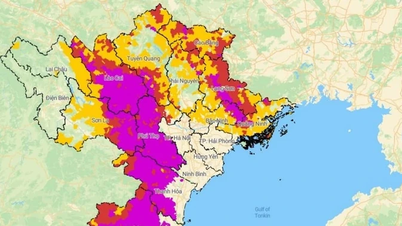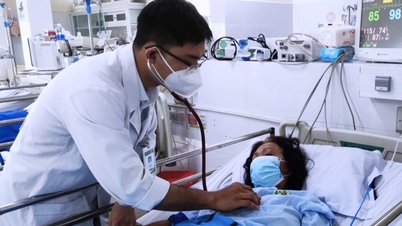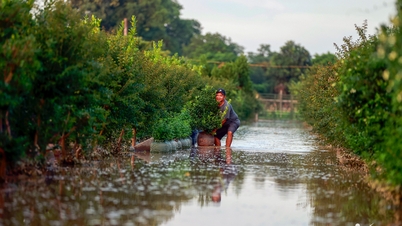Tetanus is an acute disease caused by the exotoxin (tetanus exotoxin) of tetanus bacteria (Clostridium tetani) that develops at the wound under anaerobic conditions.
This article was professionally consulted by Dr. Nguyen Huy Luan, Pediatrics - Vaccination Clinic, University of Medicine and Pharmacy Hospital, Ho Chi Minh City.
Tetanus bacteria
- Tetanus bacteria are found in the soil and are present everywhere.
- Under anaerobic conditions, tetanus spores develop into bacteria and produce very strong toxins.
- The blood and lymphatic system can spread toxins throughout the body.
- The toxin acts at certain locations in the central nervous system, causing muscle spasms and paralysis of all parts.
- If not treated promptly, it can lead to respiratory arrest and even death.
People at high risk of disease
- Pregnant women
+ There is a risk of disease during labor.
+ Bacteria invade causing uterine tetanus.
+ Other parts can be affected if there are complications.
- Newborns
+ Can be encountered through umbilical cord incision.
+ Medical instruments are not carefully sterilized so bacteria have a chance to penetrate.
- Farmers and farm workers
+ Due to frequent contact with mud, fertilizer, poultry, foreign objects...
+ Workplaces also have many tetanus bacteria residing.
- Worker
+ Due to frequent contact with sand, sharp construction materials such as metal, concrete, steel...
+ Risk of injury and tetanus infection.
- People with diabetes
+ History of using immunosuppressive drugs or immunodeficiency disease.
+ Use intravenous drugs.
How to prevent
- The best way is to get a tetanus vaccine.
- Everyone is recommended to get vaccinated. High-risk groups need to get vaccinated even more.
America and Italy
Source link




![[Photo] Binh Trieu 1 Bridge has been completed, raised by 1.1m, and will open to traffic at the end of November.](https://vphoto.vietnam.vn/thumb/1200x675/vietnam/resource/IMAGE/2025/10/2/a6549e2a3b5848a1ba76a1ded6141fae)

















![[Video] Ministry of Health issues document to rectify medical examination and treatment work](https://vphoto.vietnam.vn/thumb/402x226/vietnam/resource/IMAGE/2025/10/2/54913f30a9934e18bcbb246c2c85f11d)



















































































Comment (0)